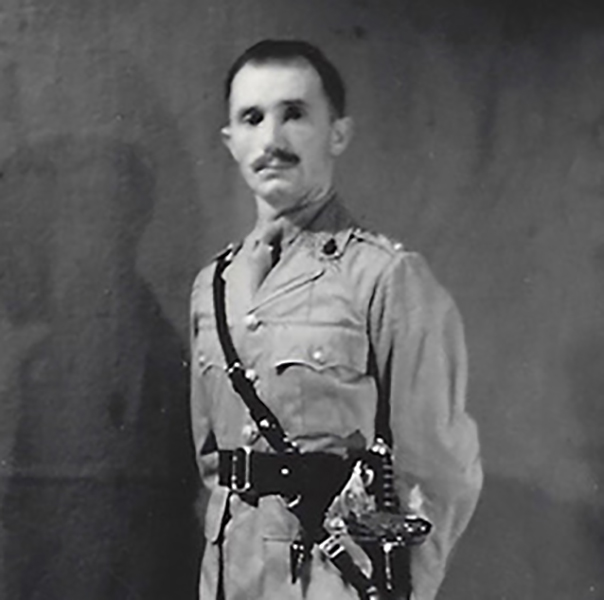Laurie, William
- Date of birth:
- November 8th, 1909
- Date of death:
- October 8th, 1996
- Service number:
- M.Z.15437
- Nationality:
- British
Biography
William Laurie was qualified MB ChB from Glasgow University in 1935. During his time at university he was given a Supplementary Reserve commission in the King’s Own Scottish Borderers in 1932. He served with the Indian Medical Service in Waziristan during the campaign against the Fakir of Ipi.
On 3 Oct 44 he assumed command of 21 Field Ambulance in 10th Indian Infantry Division, who had been in Italy since Mar 44 and remained with the unit throughout the Italian campaign.
On 13 Aug 48 Laurie retired from the Army as a Major and was granted the honorary rank of Lt-Col (London Gazette 3 Sep 48). He qualified MD at Glasgow 1949 and a Fellow Pathologist 1961.
He worked throughout his professional career in senior medical governmental positions in South Africa and Australia.
Having been a consultant for the World Health Organisation, William Laurie died on 8 Oct 96 aged 86.
Promotions:
16 April, 1932: Second Lieutenant
16 April, 1936: Lieutenant
15 May, 1939: Captain
7 March, 1941: Acting Major
7 June, 1941: Temporary Major
18 January, 1944: Temporary Lieutenant-Colonel/Major(substantive)

Do you have more information about this person? Inform us!
- Period:
- Second World War (1939-1945)
- Rank:
- Temporary Lieutenant-Colonel
- Unit:
- Indian Army Medical Corps
- Awarded on:
- November 29th, 1945
"In recognition of gallant and distinguished services in Italy."
- Period:
- Second World War (1939-1945)
- Rank:
- Temporary Lieutenant-Colonel
- Unit:
- 21 Indian Field Ambulance, Indian Medical Service, Indian Army Medical Corps
- Awarded on:
- December 13th, 1945
'Lt. Col. Laurie has commanded 21 Field Ambulance in operations since September 1944. He is absolutely fearless, and in action - whatever the weather - at any time of day or night - in the midst of shell, mortar and S.A. fire - he would be found well forward helping to establish advanced dressing stations and making sure that casualties were quickly evacuated. Regimental Aid Posts were not forgotten and stretcher parties worked more quickly and more cheerfully for his presence, encouragement, and advice. Many a casualty owes his life to the energy, organising skill, and devotion to duty of this officer who has set an outstanding example which would be difficult to equal.'
- Period:
- Second World War (1939-1945)
- Period:
- Second World War (1939-1945)
- Period:
- Second World War (1939-1945)
- Period:
- Second World War (1939-1945)
- Period:
- Second World War (1939-1945)










